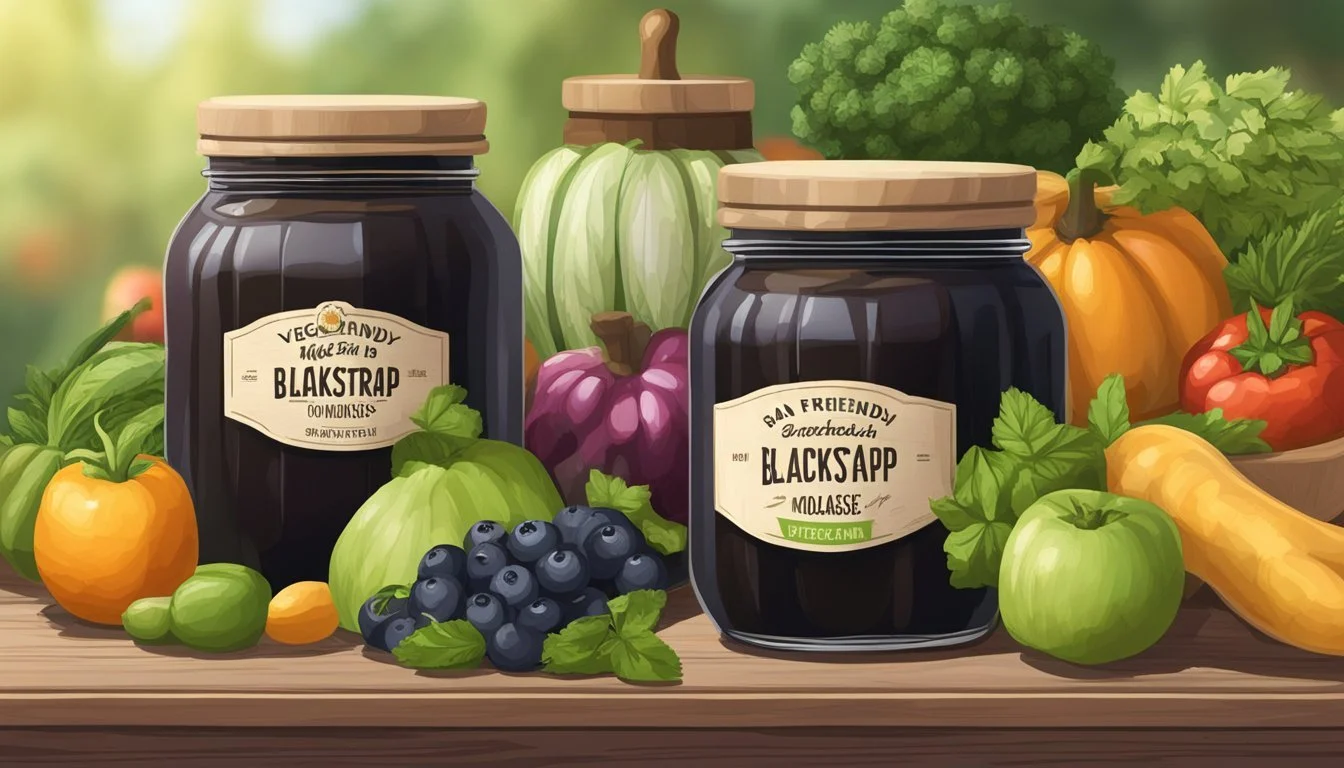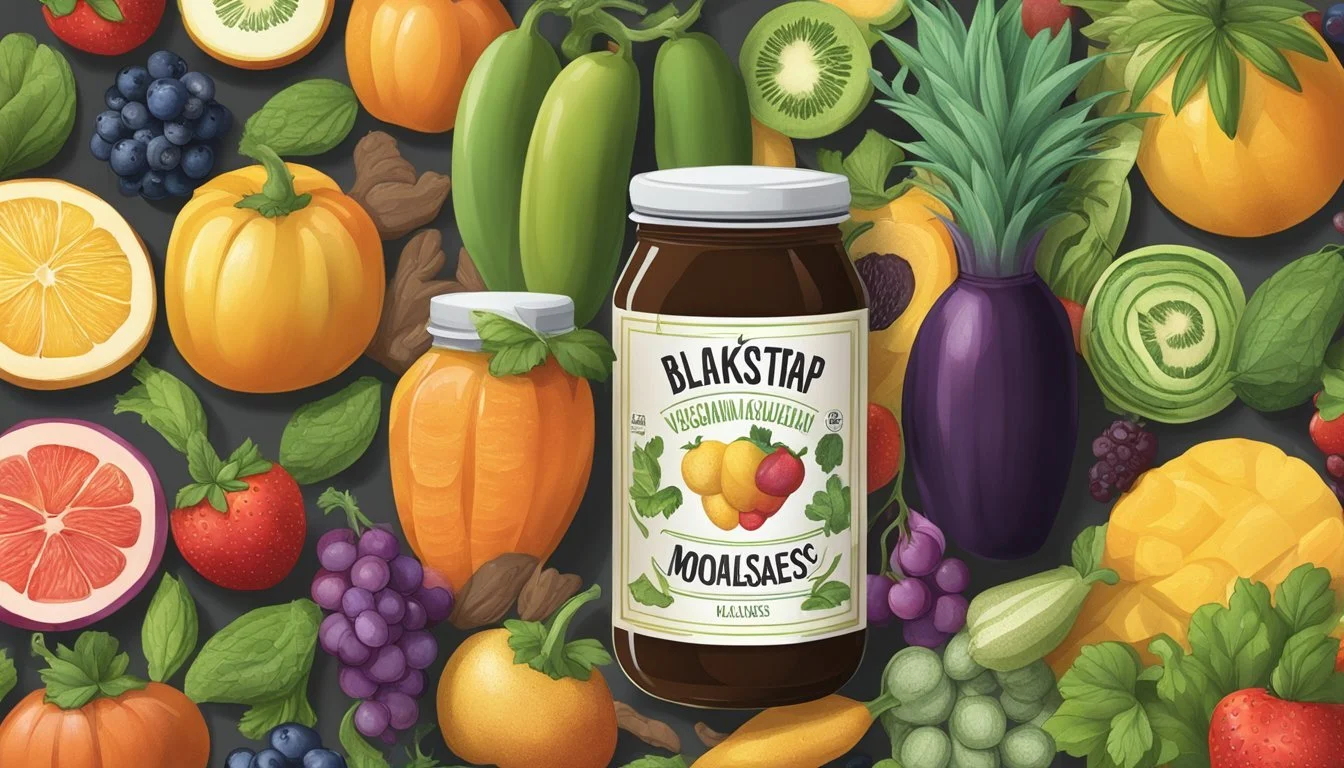Is Blackstrap Molasses Vegan?
Unveiling the Sweet Truth
Blackstrap molasses is a byproduct of the sugar refining process. After sugar cane is processed to make refined sugar, the residual dark syrup, rich in minerals and vitamins, is what is known as blackstrap molasses. This particular type of molasses is the most nutrient-dense, as it is the result of the third boiling in the sugar-making process. Its high nutritional content includes minerals such as iron, which is particularly important in a vegan diet where sources of iron are more limited compared to diets that include meat.
For individuals adhering to a vegan lifestyle, the suitability of food products depends on the absence of animal-derived ingredients. Blackstrap molasses is typically considered vegan because its production does not intentionally involve any animal products. However, some vegans might be concerned about the use of bone char in the sugar refining process. While bone char is sometimes used to whiten sugar, choosing organic blackstrap molasses can serve as an assurance, as organic sugar cannot be processed with bone char, making any molasses derived from such sugar vegan-friendly.
Therefore, blackstrap molasses is not only valuable for its nutrient profile but also is generally suitable for those on a vegan diet, provided that it comes from organic sugar or from sources that do not use bone char in their production processes. It offers a plant-based source of various minerals and can be a beneficial addition to the vegan diet.
What Is Blackstrap Molasses?
Blackstrap molasses is a viscous byproduct of the sugar industry, produced during the process of refining sugarcane or sugar beets into sugar. Recognized for its distinctive dark color and rich flavor, this variety of molasses is created by boiling sugarcane juice multiple times.
Origin and Production
Sugarcane juice is extracted from the crushing of sugarcane stalks, and the refining process involves boiling this juice in multiple stages. Blackstrap molasses is the result of the third boiling cycle, capturing concentrated nutrients as the sugar content crystallizes and is removed. Unlike lighter variations, blackstrap is not a primary goal of sugarcane processing but rather a byproduct that turns out to have its own culinary and nutritional uses.
Nutritional Profile
Nutrient Content in Blackstrap Molasses Calories 60 per tablespoon Protein 1 gram Iron Rich source Calcium Present Magnesium Present Potassium Present Vitamin B6 Present Selenium Present Copper Present
Blackstrap molasses boasts a high mineral content, including calcium, magnesium, potassium, and iron, which makes it particularly notable as a vegan-friendly source of these nutrients.
Flavor Characteristics
Blackstrap molasses has a bittersweet, robust flavor, which is stronger than that of light or dark molasses due to the intensity of the third boiling. It also has a notable brightness, often described as having a slight acidity that differentiates it from the sweeter, milder light molasses.
Varieties of Molasses
Molasses can be classified into several varieties depending on the stage of boiling and sugar extraction:
Light Molasses: Produced after the first boiling, lighter in color with a mild, sweet taste.
Dark Molasses: Comes from a second boiling, darker and more flavorful.
Sulfured Molasses: Made from sugarcane treated with sulfur dioxide for preservation.
Unsulfured Molasses: Created from naturally ripened sugarcane without sulfur.
Each type offers a different balance of sweetness, flavor, and nutritional content, with blackstrap molasses being the least sweet and most nutrient-dense.
Is Blackstrap Molasses Vegan?
In the quest to maintain a plant-based diet, vegans must carefully consider all food sources, including sweeteners. Blackstrap molasses, a byproduct of sugar production, often raises questions about its vegan status due to potential processing methods.
Defining Vegan Foods
A food is considered vegan if it does not contain animal products and is not processed using animal derivatives. Plant-based foods align with vegan principles, mainly derived from fruits, vegetables, grains, nuts, and seeds. Blackstrap molasses originates from the sugar-making process, where sugar cane is boiled to crystallize sugar. Since it is plant-based and often not directly involving animal products, blackstrap molasses in its pure form can be vegan.
Potential Non-Vegan Processes
During sugar refinement, certain non-vegan processes may be involved, such as filtering with bone char—charcoal made from animal bones—to achieve a clear, white color. This is where concerns arise about the vegan status of molasses:
Organic Molasses: By purchasing organic molasses, consumers can avoid products potentially processed with bone char, as certified organic sugar cannot be processed with bone char. Therefore, organic molasses is a safer choice for those following a strict vegan diet.
Cross-Contamination: While blackstrap molasses itself is plant-based, there's a chance of cross-contamination if it is processed or packaged in facilities that handle animal products. However, this risk is minimal and does not typically affect the vegan status of blackstrap molasses.
In conclusion, blackstrap molasses is generally accepted as vegan, particularly when sourced from organic production that ensures the absence of bone char or other animal-derived substances in the filtering process.
Uses in Cooking and Baking
Blackstrap molasses serves as a rich source of natural sweetness and deep flavor in various culinary creations, from baked goods to marinades. This robust byproduct of sugarcane processing enriches dishes with not just taste but also a desirable color and texture.
Culinary Applications
In the realm of sauces and marinades, blackstrap molasses is a staple ingredient. Its thick consistency and intense flavor make it ideal for creating rich glazes. For instance, in BBQ sauce recipes, it contributes a complex sweetness that is counterbalanced by the acidity of other components.
Cookies and Muffins: Adds chewiness and moisture.
Bread and Cakes: Provides color and tender crumb.
Sauces and Marinades: Offers thickness and flavor depth.
Recipe Enhancement
Molasses elevates both the flavor and texture of sweet treats. Using molasses in cakes and cookies not only imparts a distinctive, warm flavor but also ensures a moist texture. In bread recipes, it can enrich the dough with a subtle sweetness and a golden-brown crust.
List of baked goods enhanced by molasses:
Cookies: Molasses ginger or spice cookies.
Muffins: Adds a hint of sweetness and darker color.
Cakes: Spice cakes gain moisture and nuanced flavor.
Bread: Whole grain or rye breads with an earthy taste.
Substitutes for Molasses
Although blackstrap molasses is unique, certain syrups can be used as substitutes to replicate its sweetness and color in recipes. However, they may not mimic the exact flavor profile.
Maple Syrup: Milder, less bitter flavor.
Date Syrup: Similar thickness with a fruitier note.
Agave Nectar: Less viscous, with a more neutral flavor.
Brown Rice Syrup: Less sweet, more subtle effect.
For those looking to replace molasses in a recipe, here's a simple guideline:
Substitute Quantity to Replace 1 Cup of Molasses Considerations Maple Syrup 1 cup Will change the flavor with a maple undertone. Date Syrup 1 cup Adds a date flavor and is less processed. Agave Nectar 1 cup Can be sweeter, adjust amounts accordingly. Brown Rice Syrup 1 ¼ cups Milder sweetness; might need to increase amount for desired sweetness.
Using these alternatives requires considering the impact on the sweetness, color, and moisture content of the dish.
Health Benefits and Nutrition
Blackstrap molasses is a nutrient-rich byproduct of sugar cane processing that serves as a useful sweetener in the vegan diet. Packed with essential vitamins and minerals, it can help vegans meet some of their daily nutritional needs without relying on animal products.
Contribution to Daily Values
Blackstrap molasses is particularly noteworthy for its contribution to the recommended daily allowances (RDA) of several key nutrients. For instance, a tablespoon of blackstrap molasses can provide approximately:
Iron: 4.9mg, which is about 24.5% of the RDA for premenopausal women and over 50% for men and postmenopausal women.
Calcium: 200mg, accounting for 20% of the RDA.
Magnesium: 100mg, which is around 25% of the RDA.
These values can vary between brands, so consumers should check labels for specific information.
Dietary Considerations
As a plant-based sweetener, blackstrap molasses is naturally vegan and typically gluten-free. Consumers looking for a sweetener free from animal derivatives and gluten find it to be a fitting choice. It is also low in fat and contains a small amount of fiber. Unlike many sweeteners, blackstrap molasses does not usually contain additives or preservatives, aligning well with a diet that prioritizes natural ingredients.
Non-Nutritive Components
Molasses is largely recognized for its nutritive value, but it also contains compounds that can offer additional health benefits. It includes antioxidants, which may help mitigate oxidative stress in the body. It's also a source of certain macronutrients:
Calories: Approximately 60 per tablespoon
Protein: Roughly 1 gram per tablespoon
These components make it not only a source of sweet flavor but also a contributor to a well-rounded vegan diet.
Vegan Diet Tips
In a well-planned vegan diet, it's essential to ensure adequate nutrient intake, particularly for elements like iron, which can be less accessible from plant-based sources. Blackstrap molasses can be an intelligent addition to the vegan diet, offering not only a rich source of iron but also other essential nutrients.
Incorporating Molasses
Blackstrap molasses is a nutrient-dense byproduct of the sugar refining process. When selecting molasses for a vegan diet, one should opt for organic molasses, as it is guaranteed to be free of bone char, which is sometimes used in sugar production but is not vegan-friendly. Molasses can be effortlessly introduced into a vegan diet through various recipes:
Add a tablespoon to a smoothie for a mineral-rich sweetener.
Drizzle over oatmeal for added iron and calcium.
Incorporate into sauces and marinades to enrich flavors and nutrient content.
Avoiding Cross-Contamination
Vegans must be mindful of cross-contamination, which can occur when vegan foods come into contact with non-vegan ingredients or surfaces that have been used to prepare or process animal products. To avoid cross-contamination:
Use separate utensils and equipment for preparing vegan foods.
When dining out, communicate with the staff to ensure that your meal is prepared according to vegan standards.
Read labels carefully to confirm that products and their derivatives are free from animal-based ingredients.






